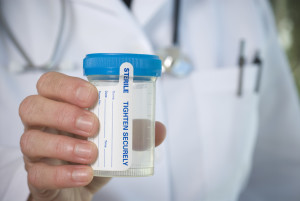Is it Legal to Conduct Random Drug and Alcohol Tests on Employees?
 Employers must follow the laws in place by state and federal governments when it comes to random drug and alcohol tests. These tests alert employers as to whether workers used different types of illegal substances or drank alcohol. This can help employers identify those who used or abused substances to keep their workplaces free from drugs and alcohol. Most employers also test employees following accidents on the job. Employers have the legal right to test employees for the use of drugs and alcohol.
Employers must follow the laws in place by state and federal governments when it comes to random drug and alcohol tests. These tests alert employers as to whether workers used different types of illegal substances or drank alcohol. This can help employers identify those who used or abused substances to keep their workplaces free from drugs and alcohol. Most employers also test employees following accidents on the job. Employers have the legal right to test employees for the use of drugs and alcohol.
Testing Before Employment
Testing for drugs and other substances prior to offering an individual a job is often part of the pre-employment screening process. Some employers also give workers a job on a conditional basis and can take back the job offer if the individual tests positive for any type of illegal or legal substances. Employers typically agree to pay for these tests themselves and require that potential workers visit a local hospital or testing center. The results usually come back within a week, but employers may get the results back in just 24 hours too.
On the Job Testing
Though employers have the right to institute random drug and alcohol tests, many employers only test workers following some type of accident on the job. This protects companies against lawsuits filed by injured workers. If the company can prove that the injury or accident occurred because the employee used drugs or alcohol on the job, the worker may have no basis for a lawsuit. Companies can also use those tests to show the government why they are not responsible for paying workers comp or for the medical bills of the injured worker. Some employers use random testing as a way to keep an eye on workers and identify those guilty of using drugs and/or alcohol.
What to Test For?
According to the United States Department of Labor, employers testing workers and potential workers must follow the rules and regulations issued by the Substance Abuse and Mental Health Services Administration. SAMHSA requires that all employers have a trained professional administer the tests and look over those tests later. The tests that employers can legally administer test for five different substances, including amphetamines, cocaine and opiates. Certain tests can also determine if employees used marijuana or alcohol in the past and how recently they used those substances.
Types of Testing
There are three different types of drug and alcohol tests that employers can use: blood, urine or hair. Blood tests are the most expensive and often require that employees visit a local laboratory on-site. In addition to the cost, many employers do not like giving employees time off work to take the test. Urine testing is more expensive but may only identify the substances used in the last few days. With hair testing, the laboratory can identify not only the type of substances used but how recently the individual used those substances. Employers often consider the cost and depth of each test before deciding which one to use.
Drug and alcohol testing provide employers with detailed information regarding which employees used substances and which substances they used, which can help the company in the case of a lawsuit. Though random drug and alcohol tests of current employees is possible, most companies only test those applying for jobs and those involved in workplace accidents.
See also: What is Employment Practices Liability Insurance (EPLI)?